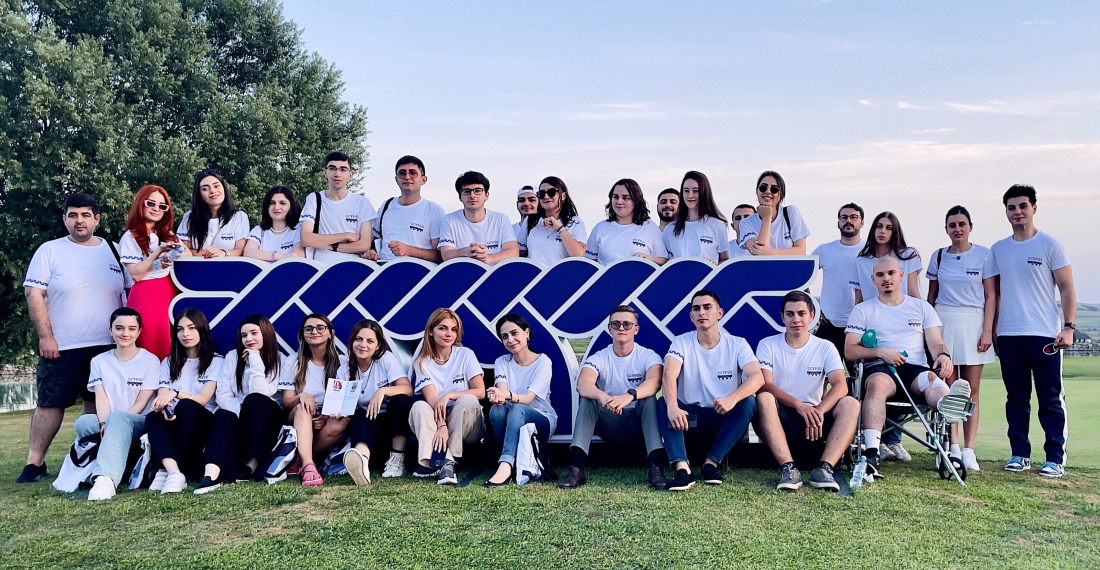The first South Caucasus Youth Peace Summer School (SCYPSS) was officially opened on Monday, 21 August in Kachreti in Georgia. Thirty participants aged between 20 and 29, ten each from Armenia, Azerbaijan and Georgia, are attending the event which will last ten days.
SCYPSS is an initiative of LINKS Europe and is organised with the support of the European Union and the Government of Norway. The idea of a South Caucasus Youth Peace Summer School was included in the report "The South Caucasus from war to peace: thirty measures between now and 2030", prepared by the Joint Liaison Group of Armenian and Azerbaijani experts on confidence-building measures in support of lasting peace in the South Caucasus, published in April 2022.
A faculty of experienced international and local academics, practitioners and experts will help deliver the content of the school which will consist of dozens of elements including workshops, lectures, debates, cine-forums and numerous social events.
At the opening session on Monday (21 August), Dr Dennis Sammut, Director of LINKS Europe, Ms Rebecca Lie, Charge d’affaires at the Embassy of Norway in Tbilisi and Gottfried Hanne, Head of the Regional Office of the EU Special Representative for the South Caucasus made short remarks during which they highlighted the significance of the school, and the importance of timing during which it is being held.
During the opening session participants and guests marked a minute of silence to remember the many young people who died in conflicts in the South Caucasus in the last three and half decades: “We owe it to them to work for peace in the region so that future generations will not have to make the same sacrifice”, Dr Sammut said in his opening remarks. He said that the School was an opportunity for young people from the three countries to reflect on their future, and find ways of building that future together. He said the School was an exercise in sharing ideas and learning from each other’s experiences. Earlier, the School’s Dean of Studies, Dr Maja Vodopovic from Leiden University outlined the topics that will be covered during the ten days of School activity. Guest speakers will also visit the School over this period to deliver lectures and workshops. On 29-30 August, the thirty school participants will join established experts and practitioners from the region and beyond for the first South Caucasus Regional Dialogue Forum.
For more information about LINKS Europe or the first South Caucasus Youth Peace Summer School please contact Maximiliaan van Lange (maximiliaan@links-europe.eu)







